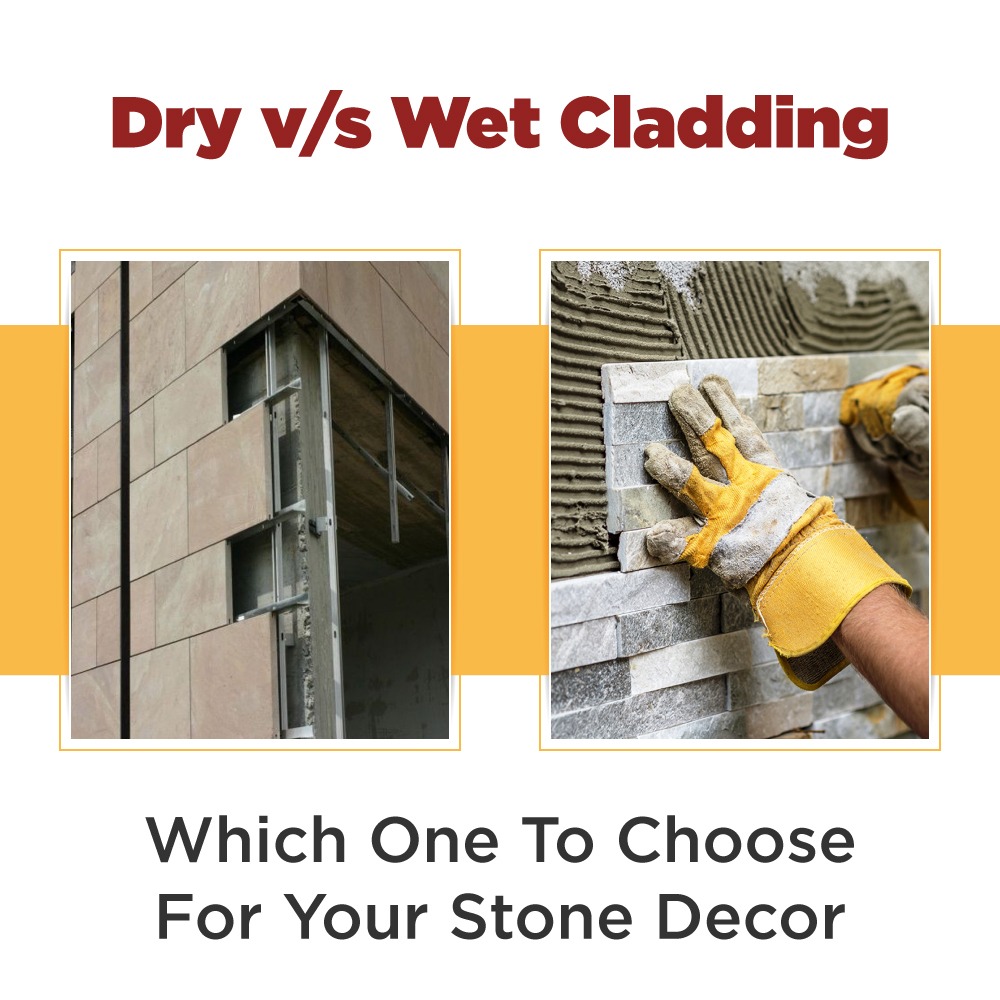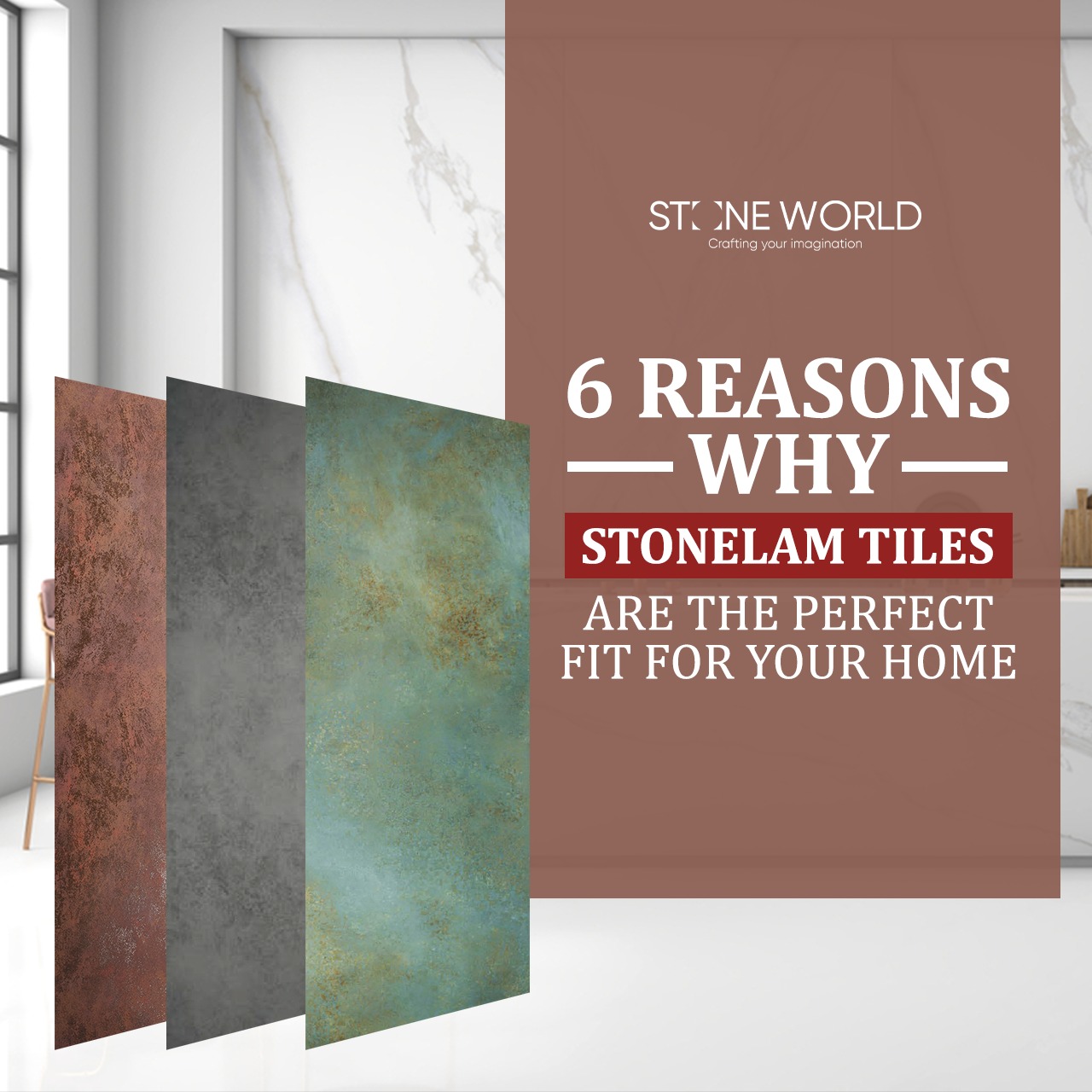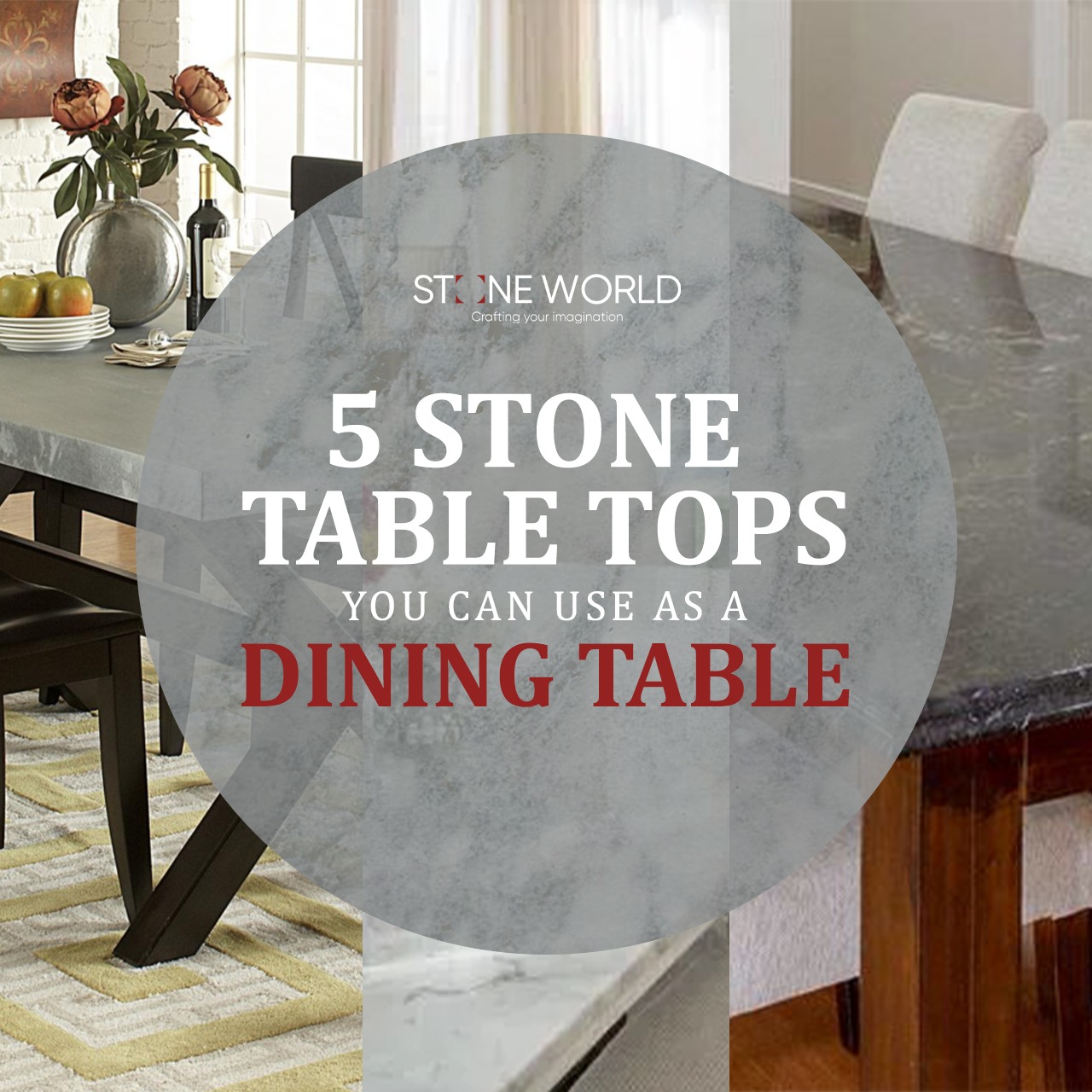
What’s the one thing that single-handedly transforms the entire ambience of a place? Walls, of course!
Walls are perfect to decorate and the most common trend in wall enhancement is wall cladding – a process of adding a protective or decorative layer of stone to elevate its appearance.
If you have already decided the type of stone & finish, you might be stuck between the two different methods of installation - Dry cladding and wet cladding. Stone décor is highly durable and resistant to extreme weather. However, the ultimate effect also depends on the installation process.
Dry-wall cladding is also known as a mechanical installation that involves drilling stones into the wall. It requires the use of embedded metal anchors, which ensures each piece of cladding is secured and will last longer. Dry cladding needs thicker stones so that they won’t crack during the process. If you use thinner stones, some cracks may appear and ruin the appearance. Dry cladding is comparatively complex than wet stone cladding, and it requires skilled labour to perfect this job. The overall cost of dry cladding is higher than wet cladding as it requires a lot of attention and highly trained professionals. Dry cladding gives you room for expansion and modifications. However, this entire process needs to carefully done, and you should hire an experienced crew rather than doing it yourself.
It is also known as a direct adhered method that does not require drilling or mechanical efforts. It’s an easy process that involves bonding the stones to the wall with a strong adhesive. The stone sticks from edge to edge with no space left in between, which makes it more appealing. In wet cladding, cracks never occur as there is no drilling involved and best suited for comparatively thinner stone. The process is relatively easier than dry cladding and does not require highly trained professionals or skilled labour. On the other hand, the stones may chip and fall over the years from reasons like lack of care, extreme weather or if the adhesive is compromised in any way. Nevertheless, both kinds of cladding serve a different purpose. One quick way to enhance your interiors is to go for stone veneer - an easy and durable hack to upgrade your home decor, but if you are looking to build a one-of-a-kind structure, dry cladding is the most preferred option. Confused about choosing the right stone decor for your wall? Just give us a call on 1800-890-4486, and we would love to help you out!

Stonelam slab materials are a combination of amazing looks and innovative and advanced technology. Stonelam tiles are…

Your dinner table is the boiling pot of not just food but stories and a place to bond. Besides its functionality, careful…

There is no rule that says you have to spend a lot of money to make your home look luxurious. It is possible to achieve…